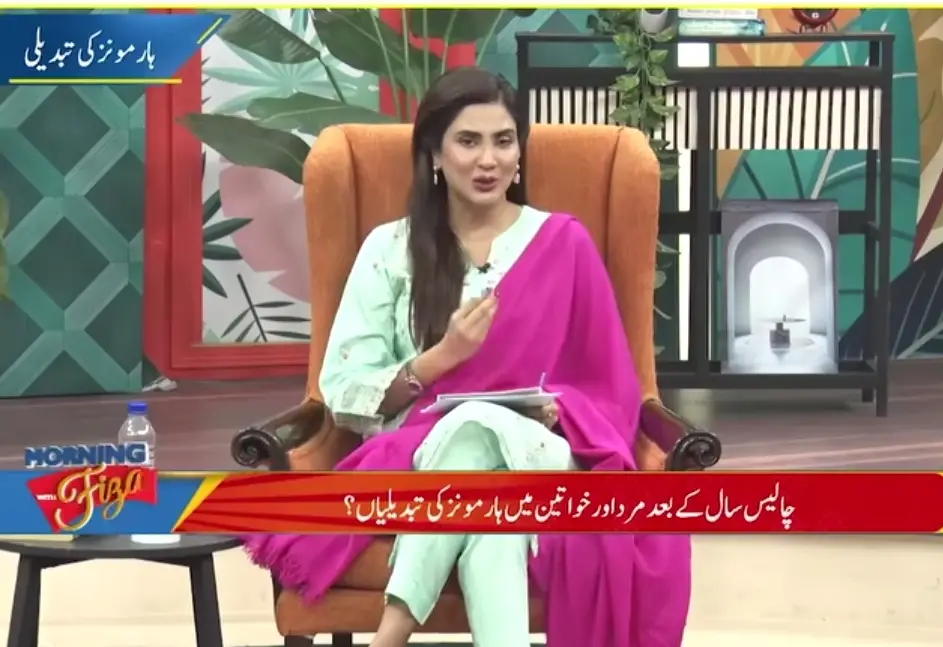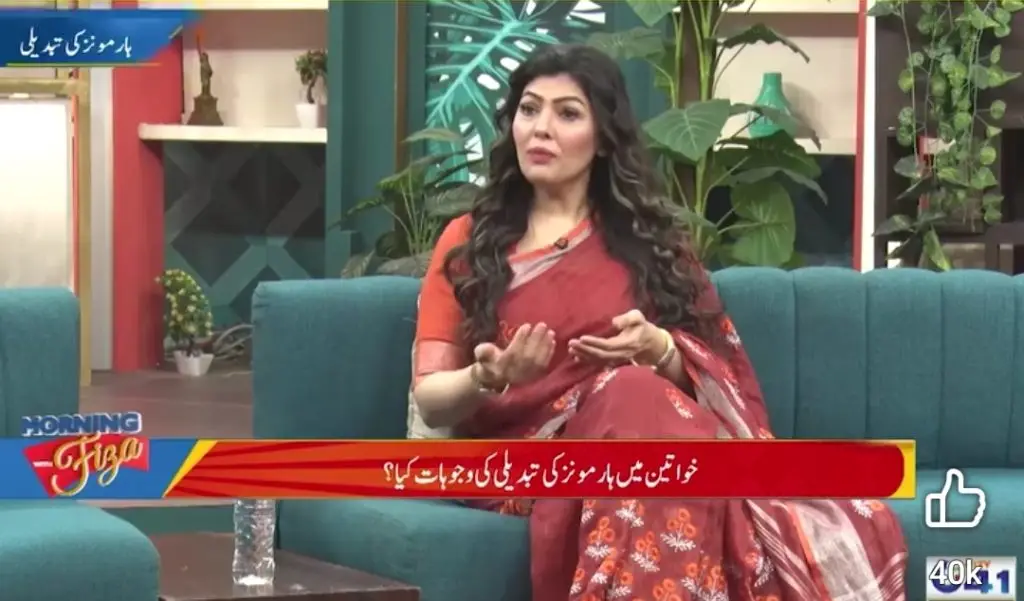Now Reading: Fiza Ali’s Morning Show Sparks Controversy Over Sensitive Discussion
-
01
Fiza Ali’s Morning Show Sparks Controversy Over Sensitive Discussion
Fiza Ali’s Morning Show Sparks Controversy Over Sensitive Discussion

Pakistani actress and host Fiza Ali is no stranger to making headlines, and this time, she’s under fire for a bold and controversial discussion on her morning show aired on City42. The popular celebrity, known for her viral videos and hit dramas like Mehndi, Ghao, Moum, and Love, Life Aur Lahore, recently stirred debate after hosting a discussion on women’s sexual health—an often-taboo subject in Pakistani media.

The Controversial Discussion
During her show, Fiza Ali invited Dr. Shawana Mufti, a well-known aesthetician and medical expert, to discuss issues related to women’s sexual health. In the episode, Fiza asked the doctor about dietary recommendations for sexually inactive women and the medical treatments available for those experiencing sexual dysfunction.
Dr. Shawana Mufti responded with medical insights, stating that such conditions require proper medical treatment rather than just lifestyle adjustments. She highlighted that women facing these issues may benefit from BRT Hormone Replacement Therapy (HRT) and certain dietary changes to improve their health. She emphasized the importance of consuming foods rich in estrogen, such as legumes, lentils, broccoli, flaxseed, and other green vegetables.

Public Reaction: Mixed Responses
The segment immediately caught attention on social media, with many criticizing Fiza Ali for discussing an intimate topic on national television. Some viewers felt that such discussions were inappropriate for a morning show audience, while others supported her for breaking stereotypes and bringing attention to women’s health issues that are rarely addressed openly in Pakistan.
While some praised Dr. Shawana Mufti for her professional advice, others questioned whether the discussion was too explicit for TV audiences in a conservative society.
Is It Time to Normalize Such Conversations?
Women’s sexual health is a neglected topic in South Asian societies, often shrouded in stigma and misinformation. While some argue that morning shows should avoid such discussions due to their family-friendly nature, others believe it’s a step toward normalizing important health conversations.
Despite the backlash, the episode has sparked a crucial conversation on social media, raising questions about how Pakistani media should approach sensitive health topics.
What are your thoughts? Should such discussions be encouraged on mainstream television, or do they cross the line? Share your opinion in the comments!













